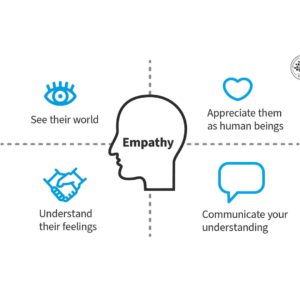Leadership is a timeless concept that transcends cultures, industries, and eras. It is the art of guiding individuals or groups toward a common goal, often navigating through challenges and uncertainties. Effective leadership is not merely about holding a position of authority; it is about influencing and inspiring others through vision, integrity, and action. This article explores the core elements that define true leadership and how they manifest in various contexts.
Vision: The Beacon of Leadership
At the heart of leadership lies vision. A leader with a clear and compelling vision can inspire and mobilize people toward achieving great feats. Vision provides direction and purpose, serving as a roadmap for the future. It is the leader’s responsibility to articulate this vision in a way that resonates with others, creating a shared sense of purpose and motivation.
Great leaders are often visionary thinkers. They possess the ability to see beyond the immediate challenges and envision a better future. This foresight is crucial in setting long-term goals and making strategic decisions that align with the organization’s or group’s objectives. Visionary leadership is exemplified by figures like Martin Luther King Jr., whose dream of a just society galvanized a nation, and Steve Jobs, whose innovative vision transformed the technology industry.
Integrity: The Foundation of Trust
Integrity is the cornerstone of effective leadership. It is the quality of being honest and having strong moral principles. Leaders who demonstrate integrity earn the trust and respect of their followers, which is essential for maintaining a cohesive and motivated team. Integrity involves consistency in actions, values, methods, and principles, fostering an environment of transparency and accountability.
A leader with integrity leads by example, setting a standard for others to follow. This means making ethical decisions, being truthful, and owning up to mistakes. When leaders act with integrity, they build a culture of trust that encourages open communication and collaboration. This trust is vital in times of crisis, where followers look to their leaders for reassurance and guidance.
Communication: The Bridge to Connection
Effective communication is a fundamental skill for leaders. It involves not only conveying information clearly and concisely but also listening actively and empathetically. Leaders must be adept at understanding the needs, concerns, and aspirations of their team members and stakeholders. This two-way communication builds relationships and fosters a sense of belonging and commitment.
Great leaders are also storytellers. They use stories to illustrate their vision, values, and goals, making abstract concepts tangible and relatable. Through storytelling, leaders can inspire and motivate their followers, creating an emotional connection that transcends mere transactional relationships. Additionally, effective communication involves providing feedback and recognition, which are crucial for personal and professional growth within the team.
Adaptability: Navigating Change with Agility
In an ever-changing world, adaptability is a crucial trait for leaders. The ability to navigate through uncertainty and adapt to new circumstances is what sets successful leaders apart. Adaptable leaders are open to new ideas, willing to take calculated risks, and able to pivot strategies when necessary. This flexibility allows them to respond effectively to challenges and seize opportunities that arise.
Adaptability also means being resilient in the face of setbacks. Leaders who can maintain their composure and focus during difficult times inspire confidence and perseverance in their followers. They view challenges as opportunities for learning and growth, fostering a culture of continuous improvement and innovation.
Empathy: Connecting on a Human Level
Empathy is the ability to understand and share the feelings of others. It is a critical component of emotional intelligence, which is increasingly recognized as a key factor in effective leadership. Empathetic leaders are attuned to the emotions and experiences of their team members, creating a supportive and inclusive environment.
Empathy allows leaders to build strong relationships based on mutual respect and understanding. It helps them to address conflicts constructively and to support their team members’ personal and professional development. Leaders who demonstrate empathy foster loyalty and engagement, as people are more likely to commit to a leader who genuinely cares about their well-being.
Conclusion: The Legacy of Leadership
Leadership is a multifaceted and dynamic quality that involves vision, integrity, communication, adaptability, and empathy. It is about more than just directing others; it is about inspiring and enabling them to achieve their full potential. True leaders leave a lasting legacy by shaping the future and empowering those around them.





Leave a Reply